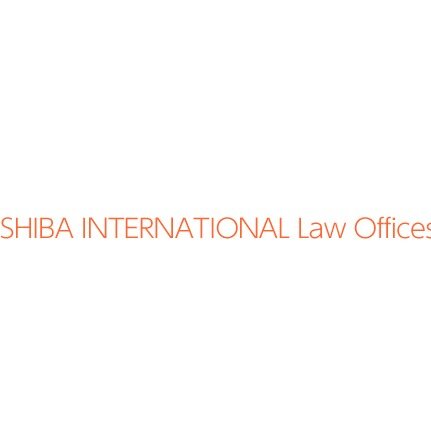Best Business Registration Lawyers in Tokyo
Share your needs with us, get contacted by law firms.
Free. Takes 2 min.
List of the best lawyers in Tokyo, Japan
About Business Registration Law in Tokyo, Japan
Business registration in Tokyo, Japan, is regulated by national legislation and local regulations. The primary national law governing the registration of businesses is the Companies Act, which provides the framework for company formation, governance, and compliance. In Tokyo, as in the rest of Japan, there are several types of business structures that entrepreneurs can choose from, including sole proprietorship (kojin jigyo), general partnership (gomei kaisha), limited partnership (goshi kaisha), joint-stock corporation (kabushiki kaisha), and limited liability company (godo kaisha).
Business registration is handled by the Legal Affairs Bureau, where business owners must file their company's articles of incorporation and other necessary documents. For foreign nationals, additional steps may be required, such as obtaining a Certificate of Eligibility and ensuring compliance with the Foreign Exchange and Foreign Trade Act.
Why You May Need a Lawyer
Legal assistance is often sought in business registration for several reasons:
- Complex Documentation: Preparing the required documents can be daunting, as they must adhere to strict legal standards.
- Regulatory Compliance: Understanding and complying with local laws and national regulations is critical to avoid penalties.
- Foreign Investment: Foreign investors may require guidance on specific regulations concerning foreign ownership and business operation in Japan.
- Contract Negotiation: Lawyers can assist with drafting and negotiating contracts associated with business formation, such as shareholder agreements.
- Intellectual Property: Protecting trademarks, patents, or other intellectual property may require legal advice.
Local Laws Overview
In Tokyo, the key elements of local laws relevant to business registration fall under the jurisdiction of both national statutes and Tokyo Metropolitan Government regulations. Some of these include:
- Company Types: Selection of the correct company structure is vital and should be made considering liability, taxation, and operational flexibility.
- Registered Office: Every business must have a registered office within Tokyo to receive official communications.
- Director Requirements: Certain types of companies require at least one director who is resident in Japan.
- Reporting Obligations: Companies must file annual reports and financial statements with the authorities.
- Licensing: Certain business activities may require additional licenses or permits from Tokyo Metropolitan Government or other regulatory bodies.
Frequently Asked Questions
What types of business structures are available in Tokyo?
Common business structures include sole proprietorship, general partnership, limited partnership, joint-stock corporation, and limited liability company.
Do I need a physical office in Tokyo for business registration?
Yes, a registered address within Tokyo is required for official correspondence and registration purposes.
Can foreign nationals register a business in Tokyo?
Yes, foreign nationals can register a business but may face additional requirements such as obtaining a specific visa or residency status.
Are there any specific licenses required for doing business in Tokyo?
Depending on the type of business, specialized licenses or permits may be required by the Tokyo Metropolitan Government or other regulatory agencies.
How long does it take to register a business in Tokyo?
The time frame can vary but it generally takes a few weeks to complete the registration process, provided all paperwork is in order.
What is the role of the Legal Affairs Bureau in business registration?
The Legal Affairs Bureau is the government office responsible for processing and approving business registration applications.
Do I need a resident director to register a company in Tokyo?
For certain business types like a joint-stock corporation, at least one director who is a resident in Japan may be required.
What are the annual reporting requirements for a registered business?
Businesses must file an annual report and financial statements with the appropriate Japanese authorities.
Can I register a business in Tokyo remotely?
While some steps can be completed remotely, certain requirements, like opening a bank account, typically require a personal visit.
How can I protect my business name and trademarks in Tokyo?
You should register your business name and trademarks with the Japan Patent Office to ensure legal protection.
Additional Resources
Entrepreneurs seeking legal advice on business registration in Tokyo can utilize several resources:
- The Tokyo Metropolitan Government provides guidelines for establishing a business and obtaining necessary permits.
- The Japan External Trade Organization (JETRO) offers information and support for foreign entrepreneurs.
- The Japan Company Trust Organization is a good resource for verifying businesses and understanding trustworthiness.
- The Japan Patent Office can assist with intellectual property registration.
Next Steps
If you need legal assistance in business registration, consider taking the following steps:
- Consult with a lawyer specializing in corporate law who understands the specific challenges of doing business in Tokyo.
- Gather all necessary documentation such as personal identification or corporate documents.
- Discuss with your lawyer the best type of company structure for your business needs.
- Ensure that you understand all compliance requirements to maintain your business registration in good standing.
Lawzana helps you find the best lawyers and law firms in Tokyo through a curated and pre-screened list of qualified legal professionals. Our platform offers rankings and detailed profiles of attorneys and law firms, allowing you to compare based on practice areas, including Business Registration, experience, and client feedback.
Each profile includes a description of the firm's areas of practice, client reviews, team members and partners, year of establishment, spoken languages, office locations, contact information, social media presence, and any published articles or resources. Most firms on our platform speak English and are experienced in both local and international legal matters.
Get a quote from top-rated law firms in Tokyo, Japan — quickly, securely, and without unnecessary hassle.
Disclaimer:
The information provided on this page is for general informational purposes only and does not constitute legal advice. While we strive to ensure the accuracy and relevance of the content, legal information may change over time, and interpretations of the law can vary. You should always consult with a qualified legal professional for advice specific to your situation.
We disclaim all liability for actions taken or not taken based on the content of this page. If you believe any information is incorrect or outdated, please contact us, and we will review and update it where appropriate.













